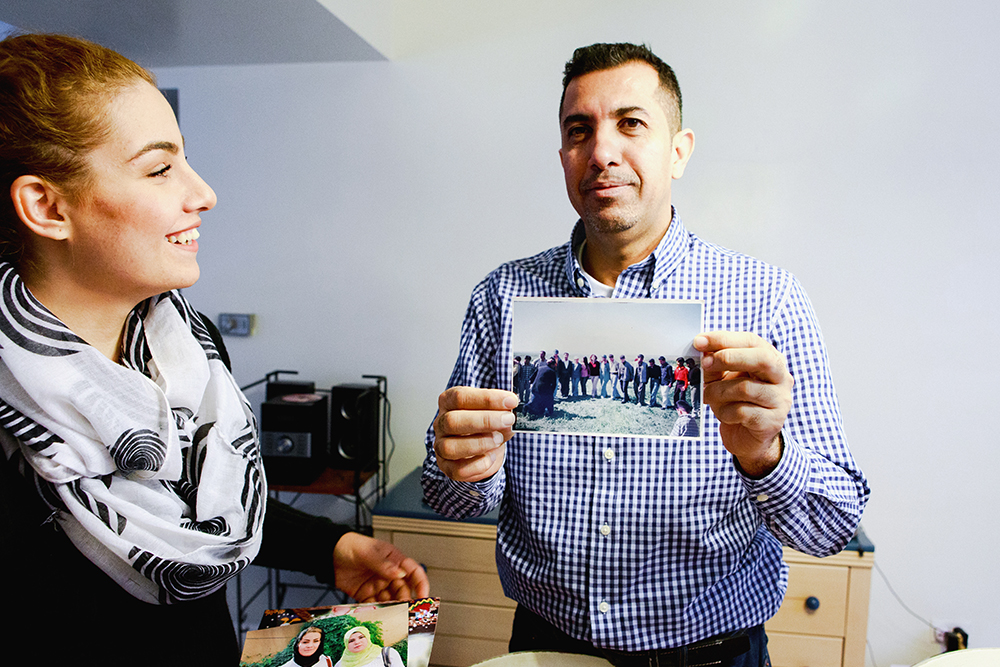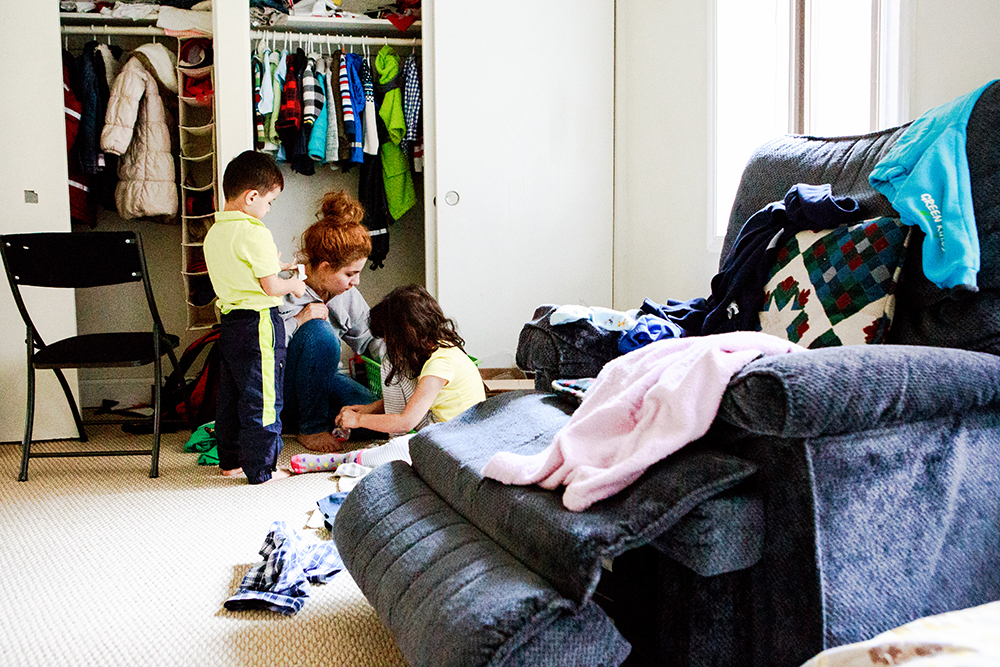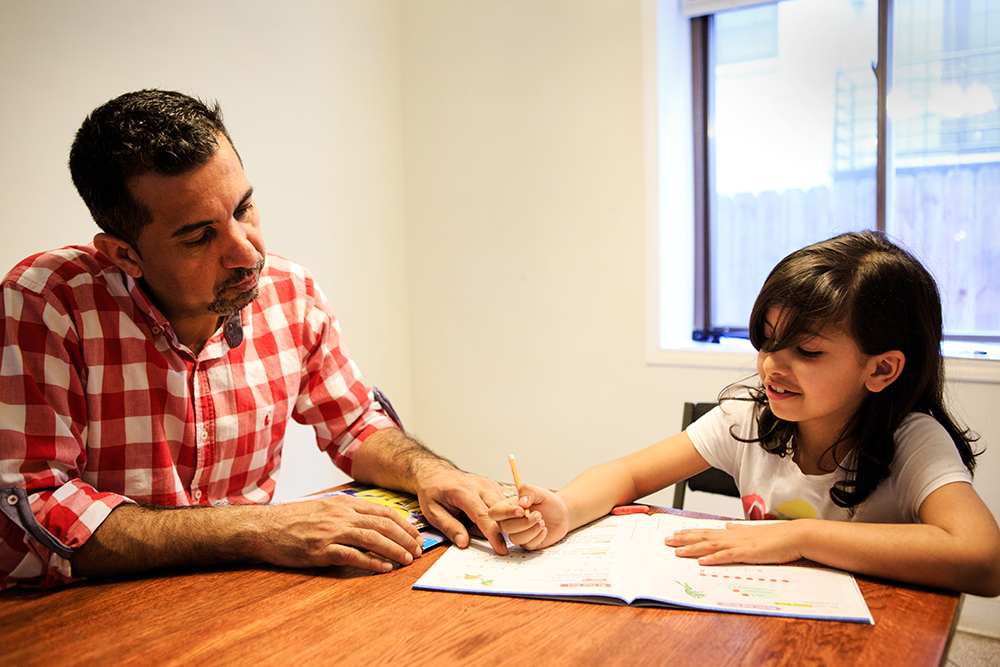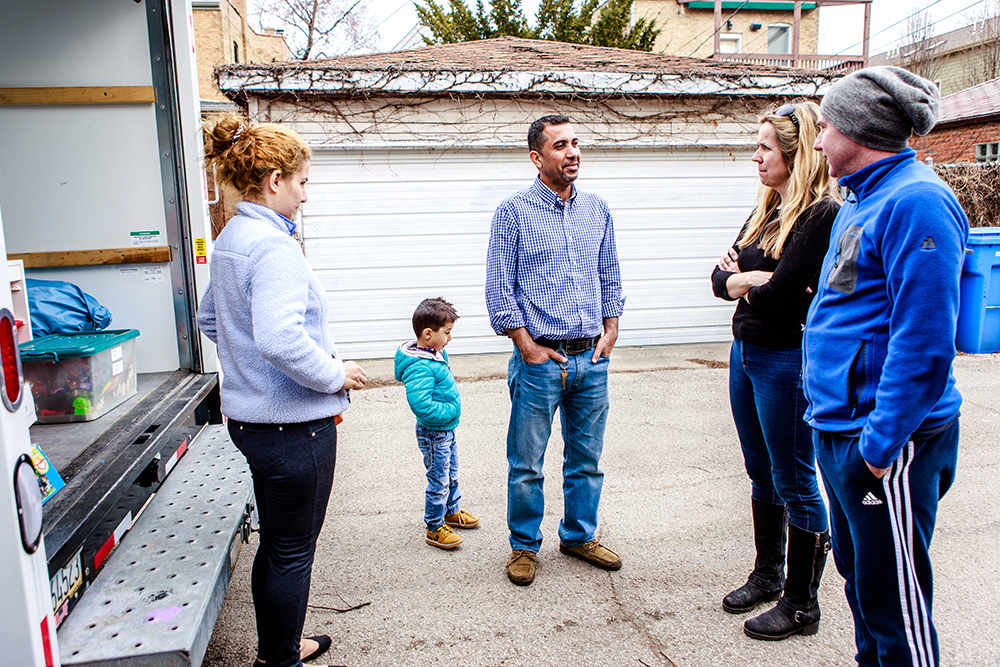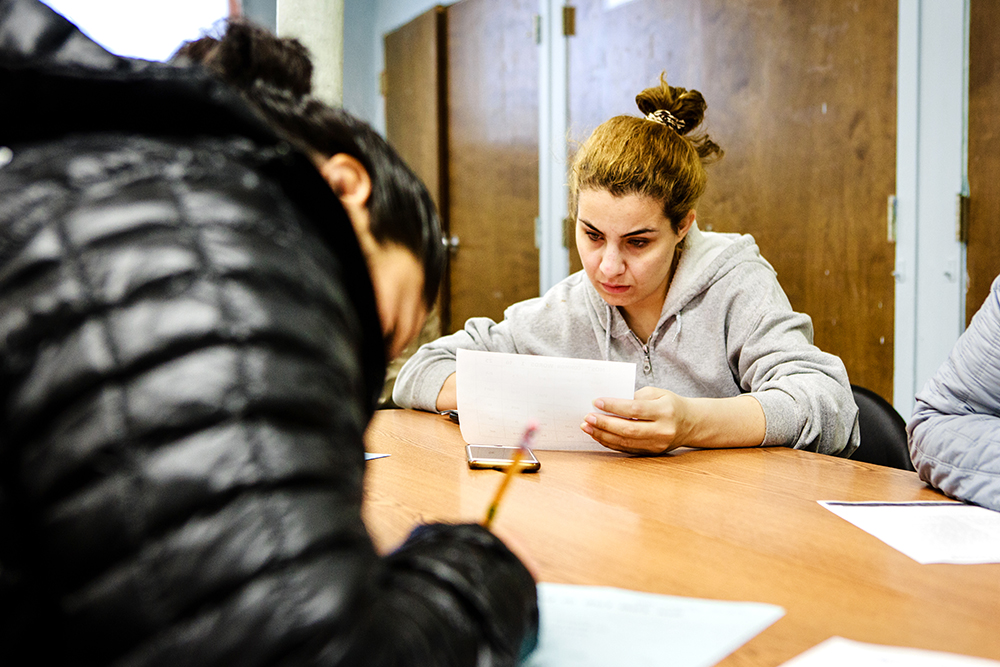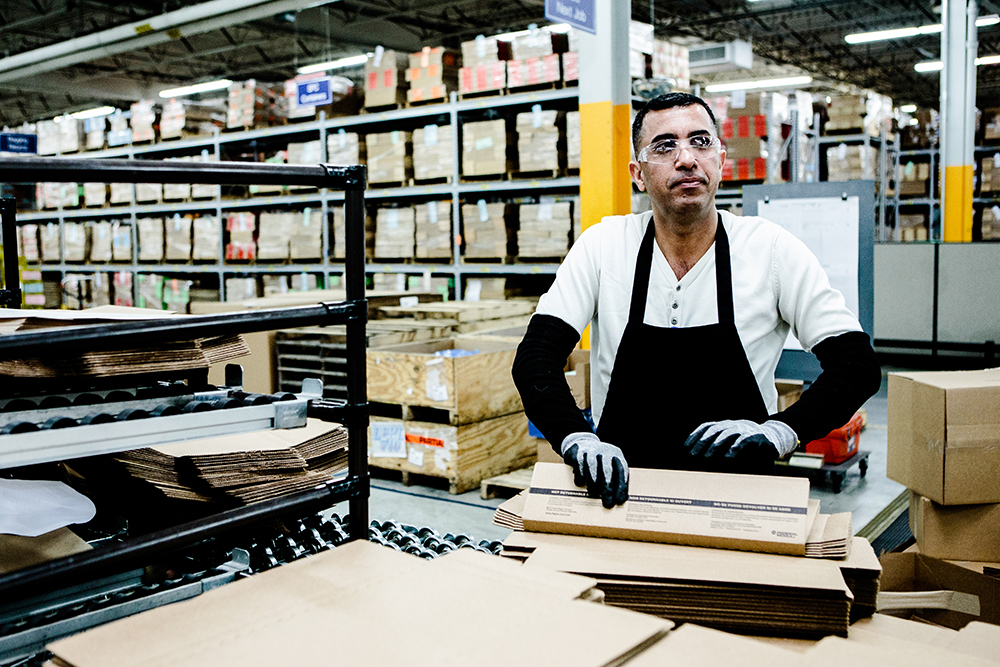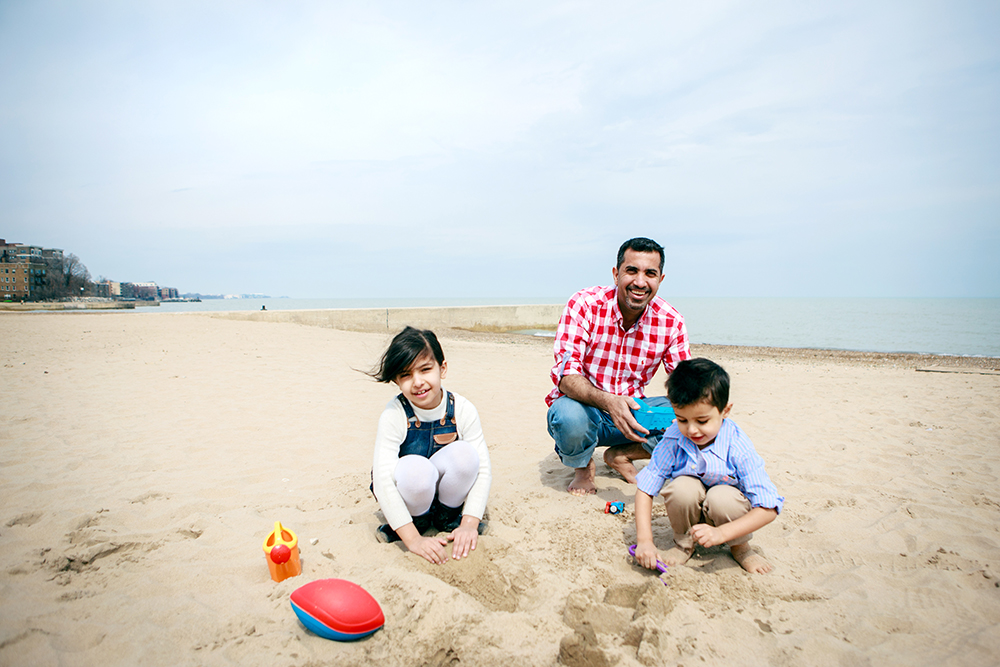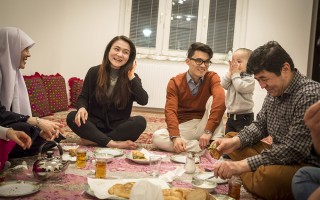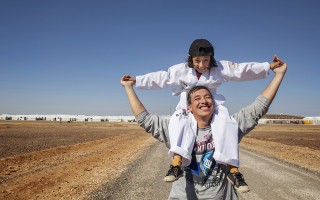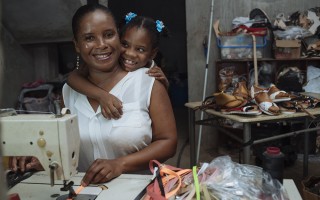Majid dreams of a good education
for his children.
He fled the war in Iraq.
Majid, 42 years old: “This was our number one dream. We wanted Rose and Baban, our children, to have a good education here. They will go to a good school, they will have a better life than what we had. And we feel safe. It is a terrible feeling when you go outside in my country, Iraq. You never know when there could be a car bombing.
“The moment we learned we would leave for America it was like a light. It is like a hope, it is like a new life. Few people get this opportunity. You cannot imagine this moment you go to the United States and live there. It’s tough, but you have to stay positive and focus on your goals. It takes time, but eventually you’ll make it.”
Majid and his wife, Shadan, along with their children, Rose (7) and Baban (4), came to Chicago, Illinois, in January 2015. Originally from Kirkuk, a diverse city in northern Iraq, they are grateful for the opportunity to live in the United States, where they have found safety for the first time in many years.
Life in Iraq was not easy. “They will not allow you to name your children with Kurdish names,” Majid says. “Even the house, they will not allow you to have it under your name. You should change your nationality. But many people don’t like the idea. It is very hard to change, even if it is just a piece of paper. Inside, it is that God created me Kurdish. So why should I change my nationality?”
Majid worked for an American non-governmental organization (NGO) in Iraq, where he helped people in need.
“I was working with the refugees. Because of the war in other cities, they were moving to my city. We gave them aid and we gave them assistance. Also, I was helping victims of the tragic car bombings and those who lost their property because of violence. We went there, we repaired their shops, we gave them grants.”
But as the danger of living in Kirkuk increased and many of his friends were killed by car bombings, Majid knew his family could no longer live safely in Iraq.
Majid and Shadan dreamed of safety and a good education for their children. “This was our number one dream,” he says from his adopted city, Chicago. “They have a good education here, they will go to a good school, they have a better life than what we had. And we feel safe. It is a terrible feeling when you go outside in my country, Iraq. You never know when there could be a car bombing.”
It took four years for Majid and his family to clear all the required steps for resettlement. They made the dangerous trip twice to Baghdad for interviews at the United States Embassy. Many of the roads they drove on were controlled by armed groups. When they finally found out they had been approved for resettlement, Majid says “the moment was like a light.”
“It is like a hope, it is like a new life. Few people get this opportunity. You cannot imagine this moment you go to the United States and live there.”
Majid was determined to find work as soon as they arrived in the USA. He sought help from a refugee resettlement agency in his new community. “I went there and I said, ‘Please find me a job, I am sick of being at home’.” After two months, Majid found work at Federal Mogul, an auto parts company, and has been working the second shift ever since. He is happy that he is able to provide for his family again.
In addition to work, Majid and his family are seeking to improve their lives through education, with hopes for a bright future. Both Rose and Baban love going to school and are improving their English while making new friends. Shadan attends daily English language classes and is working towards becoming a history teacher. Majid plans to study NGO management and apply lessons learned from his fieldwork in Kirkuk. New environments bring new challenges, but Majid encourages his family and other refugees to persevere. “It’s tough, but stay positive and focus on your goal,” he says. “It takes time, but eventually you’ll make it.”
Majid and his family can now live safely and feel proud of their Kurdish identity. “When you have contact with another nation, with another human, another different people, you feel that everyone is equal. They are looking at you not according to your background, religion, or your skin, or your things. Everyone deals with you very normal, like a human.”
Written & Video by Maren Wickwire
Show your solidarity with refugees like Majid by signing the #WithRefugees petition today.
Did you like Majid’s story? Share it with your friends!
More stories
Mojtaba escaped from Taliban violence.
He dreams of finding a cure for cancer.
Solaf survived the war in Syria.
She loves sports and dreams of living in America.
Carmen fled violence in Colombia.
She hopes to inspire other women through her work.

